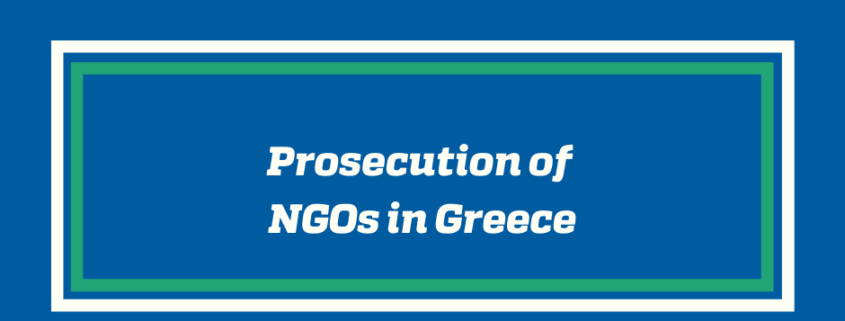Written question to the European Commission
Greek authorities are prosecuting 35 persons working for NGOs for the facilitation of trafficking in human beings. Some of them are foreign nationals, and the NGOs are primarily European search and rescue organisations, The authorities are claiming they disguise their activities as humanitarian operations. In the light of Greek policies related to asylum, it is clear that the life-saving and watchdog activities of these NGOs are at odds with the political objectives of the Greek authorities. The criminalisation of NGOs or any other non-state actors that carry out search and rescue operations at sea while complying with the relevant legal framework amounts to a breach of international law, and therefore is not permitted under EU law, as reiterated by the Commission in its recent guidance on the Facilitation Directive.
1. What will the Commission do to ensure the implementation of its guidance, given that those providing assistance by rescuing people at sea cannot be prosecuted in Greece?
2. How does the Commission plan to protect European Union citizens from unlawful prosecution by Member States?
3. As the active persecution of NGOs hinders necessary humanitarian and advocacy activity, lives are being lost daily. What strategies does the Commission have to ensure that Greece respects the obligation to save lives at sea?
Answer given by Commissioner Johansson on behalf of the European Commission
The Commission is aware that several non-governmental organisations (NGO) are under investigation in Greece, including for allegations of facilitation of irregular entry. The judicial process falls within the exclusive competence of Member States.
In the context of the New Pact on Migration and Asylum, the Commission has issued a recommendation that invites Member States to distinguish between activities carried out for the purpose of humanitarian assistance and activities that aim to facilitate irregular entry or transit, in order to exclude the former from criminalisation.
A further proposal would require Member States to set up an independent mechanism to monitor compliance with the principle of non-refoulement in line with the EU Charter of Fundamental Rights. The Fundamental Rights Agency will propose guidelines to this end and the European Asylum Support Office and the European Border and Coast Guard Agency would support the mechanism.
In its first annual Rule of Law Report, published on 30 September 2020, the Commission notes that the recently introduced additional requirements for the registration of NGOs active in the area of asylum, migration and social inclusion in Greece have been subject to criticism from a number of stakeholders and that concerns have been expressed that the ‘civic space’ for civil society to operate in Greece has narrowed since 2019. The Commission will continue to monitor the situation.




Leave a Reply
Want to join the discussion?Feel free to contribute!